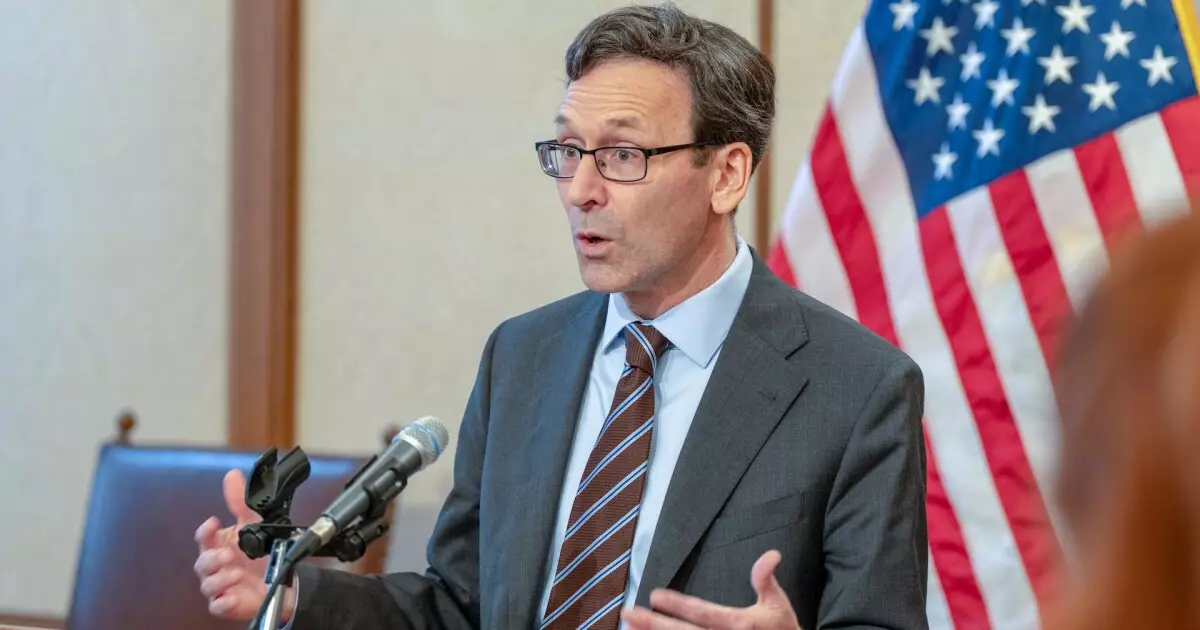The refusal of the Federal Emergency Management Agency (FEMA) to provide disaster recovery funding to states like Washington and North Carolina reveals much more than its bureaucratic inefficiency; it uncovers a systemic failure that endangers the very lives and livelihoods of citizens in crisis-ridden areas. Faced with catastrophic weather events, both states sought federal assistance, only to be met with a blank slate of responses marked by denial. The issue at hand is not merely about funding; it is about government accountability and the long-term ramifications of neglecting the well-being of American communities.
The Context of Catastrophe
In November, Washington was struck by a bomb cyclone that unleashed winds upward of 77 mph, leaving behind a trail of destruction that knocked out power for over 600,000 residents and, tragically, led to two fatalities due to fallen trees. Similarly, North Carolina bore the brunt of Hurricane Helene in September, an event that left a staggering estimated damage toll of $59.6 billion. Both states mobilized quickly—as evidenced by Washington’s request for $34 million and North Carolina’s appeal for an additional $19 billion—to try to mitigate these dire situations. Yet, the response from FEMA was to deny these requests outright.
The lack of a substantive explanation alongside these denials raises serious questions about the criteria being used by FEMA to evaluate disaster funding. While the agency claims eligibility is based on “clear criteria,” how is it that two states, already facing immense hardship, suddenly find themselves deemed ineligible for the support they desperately required?
The Human Cost of Financial Ambivalence
What many fail to realize is that beyond the figures and statistics, these denials represent real human suffering. North Carolina Governor Josh Stein received FEMA’s denial letter while he was among families grappling with the immediate aftermath of the hurricane. The emotional burden on these individuals can’t be quantified—homes are destroyed, lives uprooted, and communities fractured. In Washington, Governor Bob Ferguson has been vocal about the plight of affected communities waiting for months without the resources needed for recovery. Such delays can exacerbate already precarious living conditions, leading to further disarray and, unfortunately, prolonging the path to recovery.
Moreover, the social and economic implications of FEMA’s standoffishness extend deeper than immediate relief efforts. The denial of disaster recovery funding doesn’t just stall repair work; it hampers community resilience, potential job restoration, and local economies that rely on a swift federal response to rebound from adversity.
The Political Stakes Involved
What’s particularly infuriating is the political context swirling around these denials. The irony is palpable when considering the previous administration’s purported weakening of FEMA through personnel cuts and an unstable leadership structure. The aftermath of such neglect leaves states like Washington and North Carolina floundering in the wake of disaster, crying out for assistance that never materializes.
The current political landscape, characterized by a Democratic leadership at the state level, should not unfairly influence FEMA’s decision-making. Effective governance necessitates impartiality in responding to actual crises faced by citizens. When the agency operates on a political spectrum rather than focusing on the humanitarian crisis at hand, it risks alienating the very citizens it was created to protect.
A Call to Accountability
Neither state’s pleas for additional funding should fall on deaf ears. It is imperative that citizens advocate for not just financial assistance but also for transparent and accountable governance, holding agencies like FEMA accountable for their actions—or, in this case, inactions. The failure to act is a distinct form of negligence that the federal government cannot afford, especially in states grappling with the overwhelming reality of natural disasters. As we navigate an era of increasing climate instability, let’s make it clear: disaster recovery should not be a matter of political convenience, but a steadfast duty.
The overwhelming need for reform in how FEMA operates cannot be overstated. If we continue to allow bureaucratic machinery to dictate the urgency of assistance, we risk repeating these same injustices in future crises. It’s time to demand a system where every American in need can rely on their government without the anxiety of awaiting a letter of denial.

